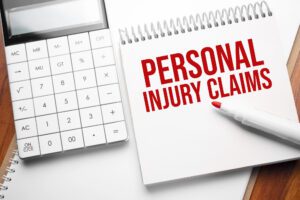What You Need To Know About Personal Injury Settlements In Texas~3 min read
Understanding personal injury settlements in Texas can seem like an overwhelming task. With its unique legal landscape, knowing the basics is crucial if you’re ever involved in an accident. In this article, we’ll break down the key aspects of personal injury settlements in Texas, making it easier for you to grasp and navigate the process.

- Comparative Fault Rule:
- Unlike some states, Texas follows a modified comparative fault rule. This means that if the injured party is found to be partially at fault for the accident, their compensation may be reduced proportionally. Understanding how this rule applies is essential for evaluating settlement offers.
- Statute of Limitations:
- Texas has a statute of limitations that dictates the time-frame within which a personal injury claim must be filed. Missing this deadline can result in the forfeiture of your right to seek compensation. Knowing the statute of limitations for your specific case is crucial for timely action.
- Importance of Documentation:
- Thorough documentation is vital in personal injury cases. This includes medical records, police reports, witness statements, photographs, x-rays, and any other evidence related to the accident and resulting injuries. The strength of your documentation can significantly impact the outcome of settlement negotiations.
- Role of Insurance Companies:
- Insurance companies play a significant role in personal injury settlements. It’s important to understand how insurance policies, including your own and that of the at-fault party, factor into the negotiation process. Your health insurance company will have a contractual reimbursement claim as well.
- Potential Damages:
- In Texas, personal injury settlements may cover various types of damages, including medical expenses, lost wages, pain and suffering, scarring, permanent impairment and more. Understanding the types of damages you’re entitled to can help ensure you receive fair compensation.
- Consideration of Future Damages:
- It’s essential to consider both current and future damages when negotiating a settlement. This includes ongoing medical treatment, rehabilitation, and potential long-term effects of the injury. Working with legal professionals and selected experts who can accurately assess future damages is invaluable.
- Mediation and Arbitration:
- In many cases, personal injury disputes in Texas may be resolved through mediation or arbitration rather than going to trial. Understanding these alternative dispute resolution methods and their implications is important for achieving a favorable settlement outcome.
- Consultation with Legal Experts:
- Given the complexities involved, consulting with experienced personal injury attorneys is important. An attorney can provide invaluable guidance throughout the settlement process, ensuring your rights are protected and helping you pursue the compensation you deserve.
Navigating personal injury settlements in Texas requires a comprehensive understanding of state laws, insurance practices, and negotiation strategies. By familiarizing yourself with these key aspects and seeking assistance from legal professionals, you can work towards securing a fair and just settlement for your injuries and losses.
Contact Springer & Lyle
At Springer & Lyle, we are committed to assisting you with all your personal injury and accident-related legal needs, ensuring that you receive the protection and compensation you deserve. Contact us at 940.370.4033 to schedule a free consultation. Springer & Lyle is located at 1807 Westminster, Denton, TX 76205.





